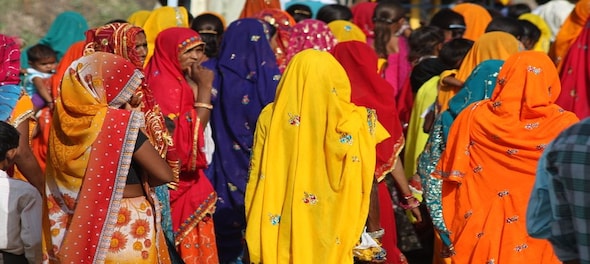
On Tuesday, our perception poll ranking India as the world’s most dangerous country for women made headlines across the world and sparked a global debate.
Rahul Gandhi was among the first to tweet about the poll. His message didn’t go unnoticed; it was re-tweeted by the thousands. He was joined by Kasturi Shankar, Alankrita Shrivastava, Kavita Krishnan, Prashant Bhushan, and Jaaved Jaafari, among many others.
Four hours after its release, the poll was trending in India: a public outcry fuelled by concern, anger and frustration.
At a time when 337 million Indians have a smartphone at hand, the speed at which news spreads is hardly surprising, but the keywords associated with the story on Twitter are very telling. They include rape, violence, conviction and shame; a powerful summary of the problem, the failure to address it, and the stark reality on the ground - a “wake-up call” as many Indian women put it.
In stark contrast, the election of Indira Gandhi as Prime Minister in 1966 gave India its first female leader well before the entire Western world. The same goes for the election of Pratibha Patil as the country’s President in 2007. And yet this has not changed much for the welfare of women in India.
The Reality In Numbers
In the world’s largest democracy, a woman is raped every 20 minutes, female foeticide is rampant, child marriage is the highest in the world, and violence against women has become a pandemic. And women are the minority: with 37 million more men in India, women are under-represented at all levels of society, a society that remains deeply patriarchal and dominated by a sense of impunity.
Impunity is indeed the key to unlocking this ongoing tragedy. How can progress be expected when no change can be anticipated?
After the Delhi gang-rape five years ago, there was a spike in the number of rape incidents being reported. In the capital alone, they tripled. But while high-profile cases have incentivised other victims to report these crimes, prosecutions have remained startlingly low: one in four across India, 30% in Delhi alone. The official numbers are just the tip of the iceberg. According to the National Bar Association, 70% of sexual harassment victims remained silent in 2017.
This toxic mix of shame and impunity is precisely what halts progress. And let’s be clear: the progress I refer to has no political colour. It’s the kind of progress a young girl will feel when she can walk to school, the progress a young man can be proud of when speaking up for a woman, the progress a victim can hear when the prison door finally slams on the trafficker who enslaved her.
Our perception poll has triggered a storm of criticism against India’s political leadership. But this is not a political manifesto. It’s a snapshot. A pixel image produced by hundreds of conversations held with some of the world’s leading women’s rights experts. It does not replace statistics, but it does indeed complement them, offering a snapshot of the situation today.
That explains, for example, why the United States of America features in our top ten ranking. At a time when funding for reproductive rights in the US is being intentionally slashed, and when the woman on the street feels empowered to speak up thanks to the #MeToo campaign, it is not surprising to see the mighty America in this inglorious list.
Lessons Are Universal
That’s why the lessons to be learned from our poll are often more universal than country-specific. I call them the three Es: Educating boys and men to respect girls; Empowering women economically and socially, and Enforcing the law. There are strong laws in India, but they are not enforced.
This is a powerful combination of measures, which would benefit not just women but society at large.
Imagine the potential of India if women were given equal rights and opportunities to men! This is the fastest growing economy in the world. If women were fully part of its growth, it would thrive beyond measure.
Monique Villa is CEO of The Thomson Reuters Foundation.
First Published: Jun 27, 2018 7:36 AM IST
Check out our in-depth Market Coverage, Business News & get real-time Stock Market Updates on CNBC-TV18. Also, Watch our channels CNBC-TV18, CNBC Awaaz and CNBC Bajar Live on-the-go!


Lok Sabha elections 2024: 28% of candidates contesting in fourth phase are 'crorepatis'
May 9, 2024 4:29 PM
Free poha-jalebi to movie ticket discounts: How cities struggling with 'urban apathy' are luring voters to polling booths
May 9, 2024 3:17 PM

